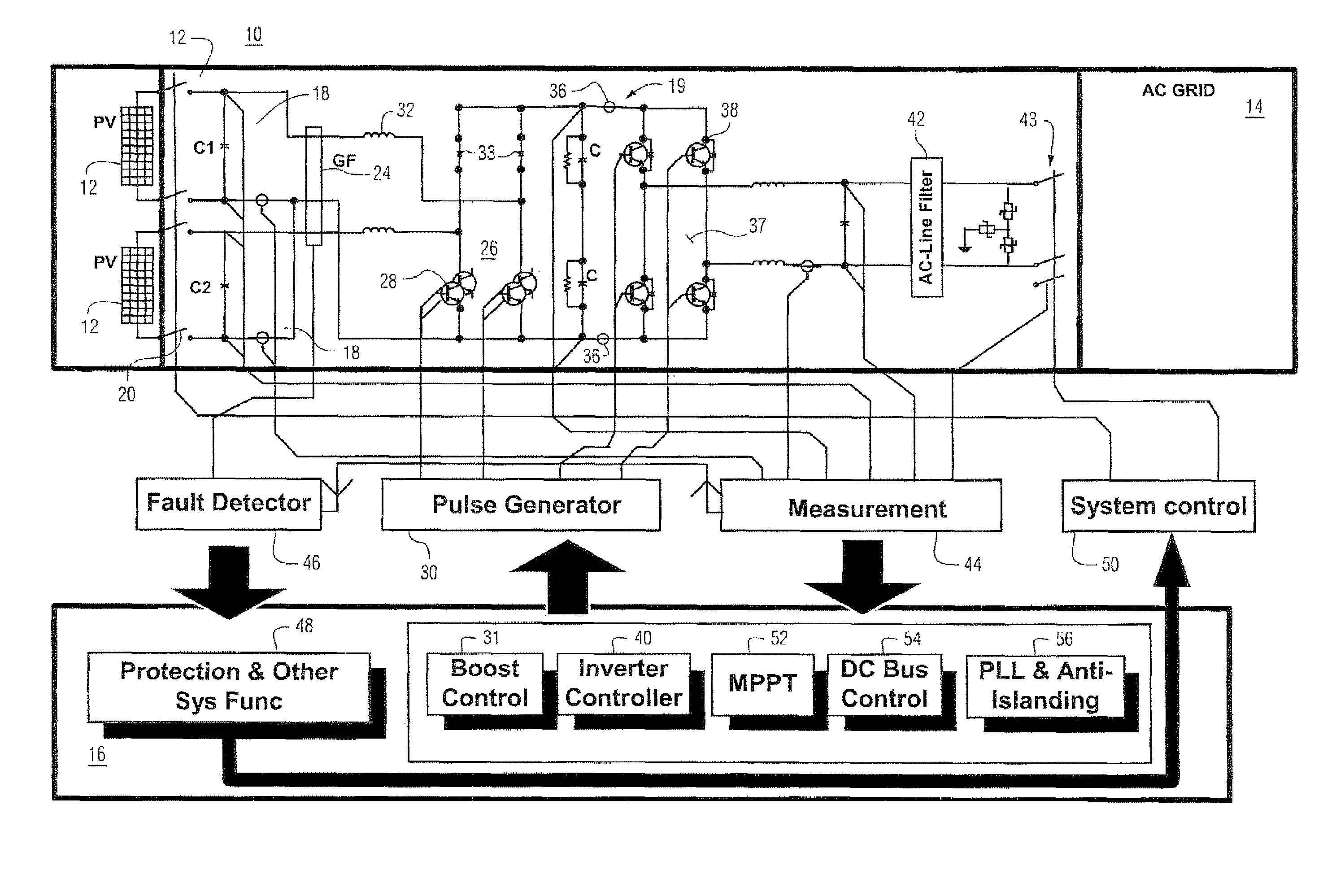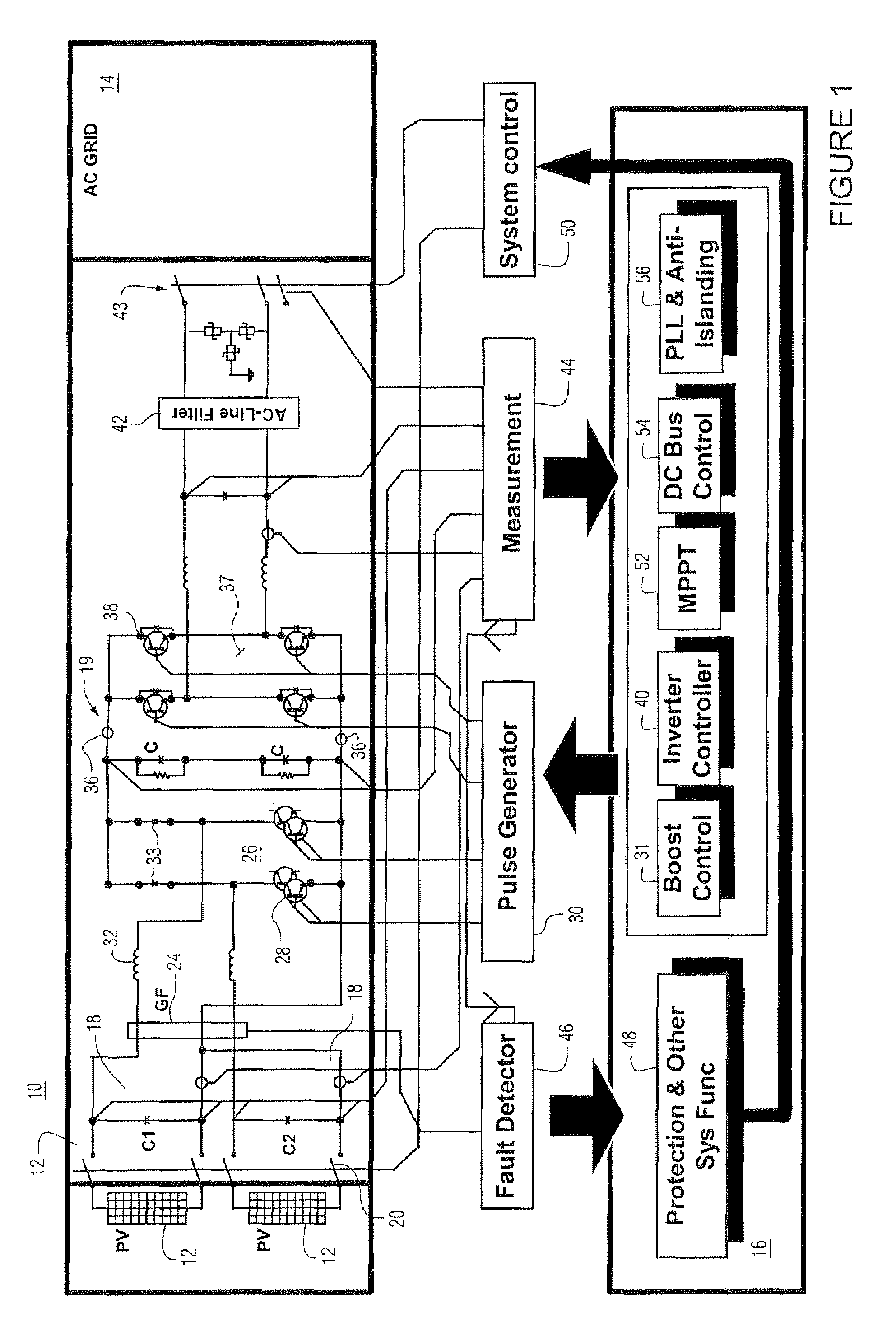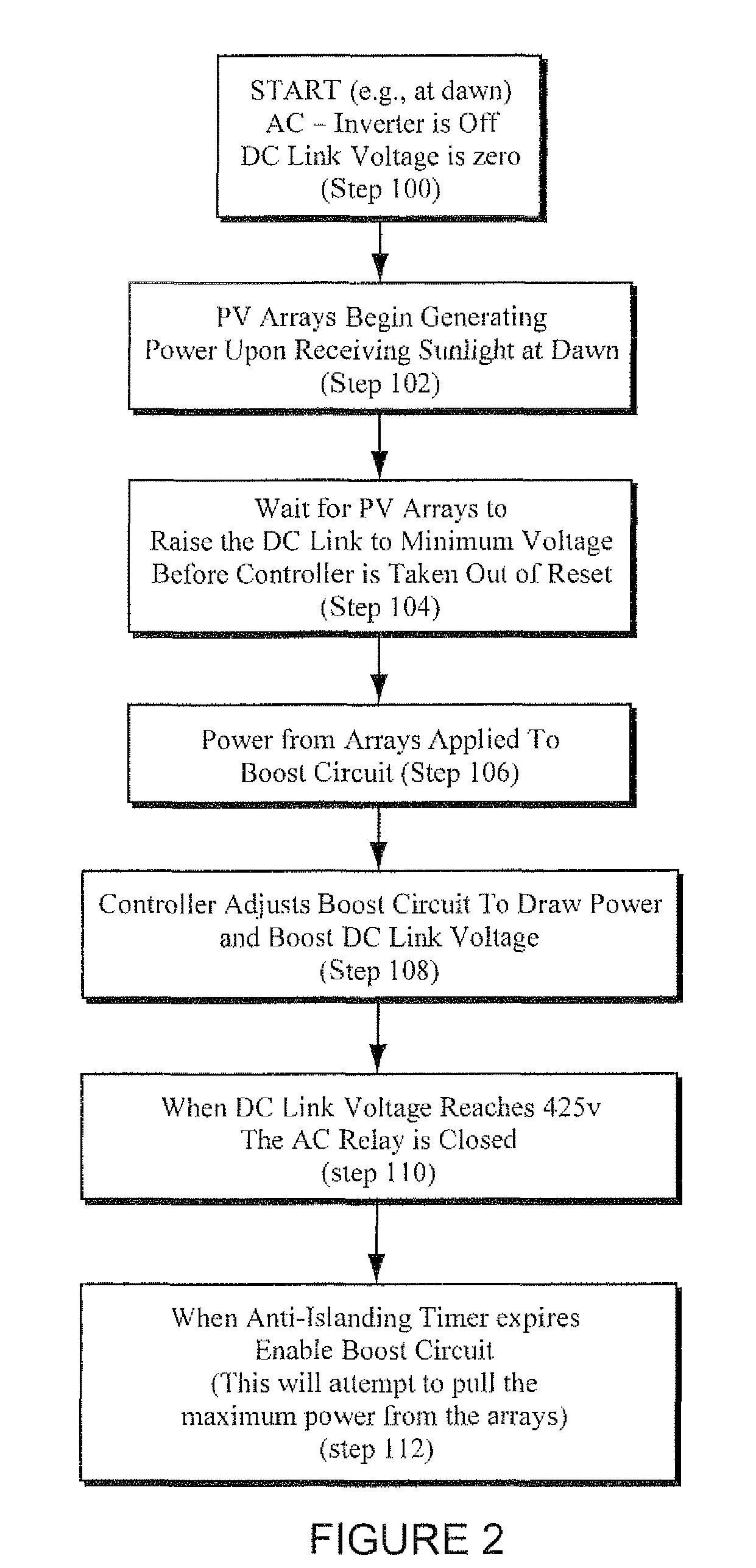Method and system to convert direct current (DC) to alternating current (AC) using a photovoltaic inverter
a photovoltaic inverter and direct current technology, applied in the direction of dc-ac conversion without reversal, process and machine control, instruments, etc., can solve the problems of power loss and reduce and achieve the effect of increasing the efficiency of the pv inverter and disabling the boost of power
- Summary
- Abstract
- Description
- Claims
- Application Information
AI Technical Summary
Benefits of technology
Problems solved by technology
Method used
Image
Examples
Embodiment Construction
[0012]FIG. 1 is a schematic diagram of a photovoltaic (PV) inverter 10, which may also be referred to as a static power converters (SPCs). The direct current (DC) power generated by photovoltaic (PV) arrays 12 is converted to alternating current (AC) power by the PV inverter. The PV inverter receives direct current (DC) power generated by one or more PV arrays 12. The PV inverter 10 converts the DC power to alternating current (AC) power that is output to an electric utility (AC Grid 14) and used locally to power appliances in a home having the inverter and array. Islanding refers to generating power solely for a local site and not providing power to the AC grid.
[0013]The conversion from DC to AC power is monitored and controlled by a controller 16 that includes a computer system and software for executing various algorithms and process routines. The PV inverter achieves a high efficiency conversion of DC to AC power by: (i) regularly updating Vmpp and operating the PV arrays at upd...
PUM
 Login to View More
Login to View More Abstract
Description
Claims
Application Information
 Login to View More
Login to View More - R&D
- Intellectual Property
- Life Sciences
- Materials
- Tech Scout
- Unparalleled Data Quality
- Higher Quality Content
- 60% Fewer Hallucinations
Browse by: Latest US Patents, China's latest patents, Technical Efficacy Thesaurus, Application Domain, Technology Topic, Popular Technical Reports.
© 2025 PatSnap. All rights reserved.Legal|Privacy policy|Modern Slavery Act Transparency Statement|Sitemap|About US| Contact US: help@patsnap.com



